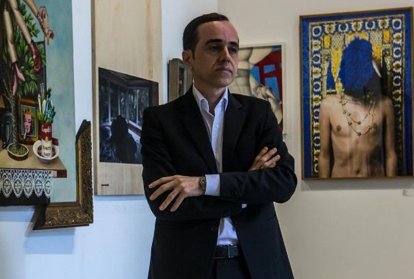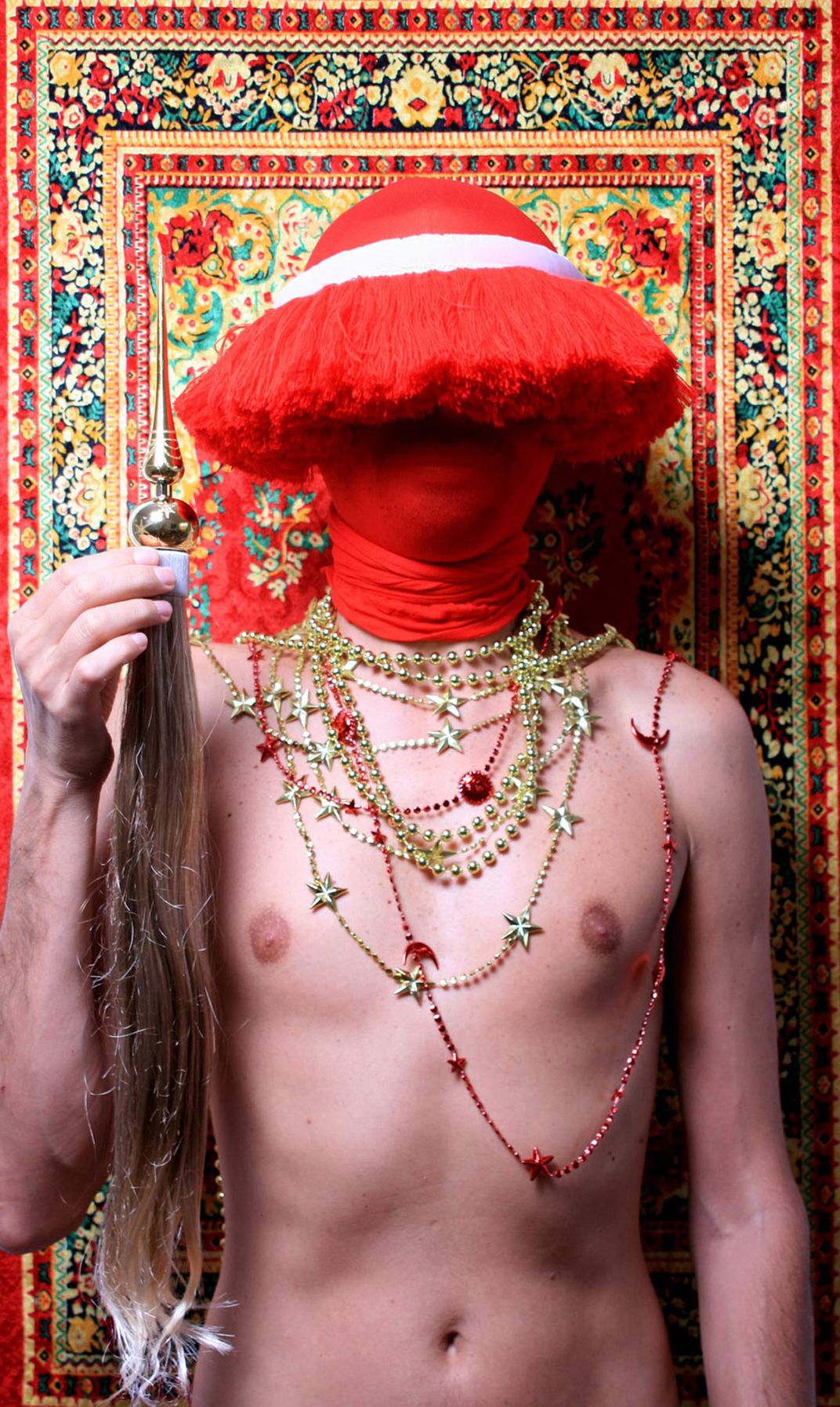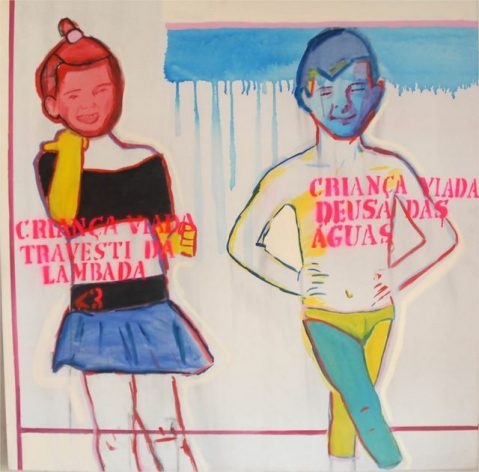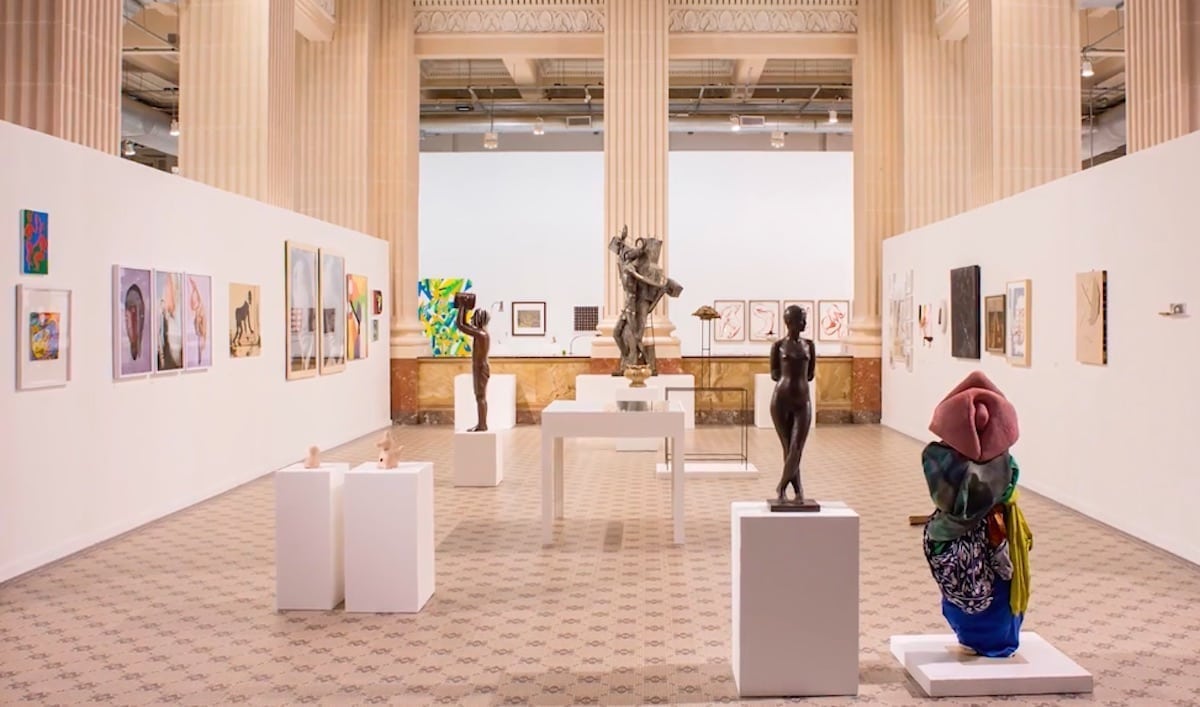Gaudêncio Fidelis
Curator
Brazil


"Sem título" [Untitled], 2009, lambda print, Nino Cais. Courtesy of the artist and Galeria Triângulo, São Paulo.
The situation escalated with Queermuseu, when members of the Free Brazil Movement (MBL), a proto-fascist and conservative organization that emerged in 2014 in the aftermath of the 2013 protests in Brazil, targeted the exhibition and publicly condemned it as immoral and offensive. In particular, they accused the exhibition of making an apology for pedophilia, pornography, blasphemy, and zoophilia––egregious claims based in a particularly vitriolic form of homophobia and transphobia. The exhibition, which included 264 works by 85 artists spanning from mid-20th century to contemporary art, explored “gender expression and identity under the perspective of difference” and the lived experience and varying representations of LGBTQI+ and queer culture in art.
Under pressure from far-right groups, religious zealots including Pentecostal and Neopentescostal Evangelicals, and negative media coverage, Santander (which one of the largest banks in Brazil and was the exhibition’s funding institution) made the unilateral decision to close Queermuseu and released an ambiguous condemnation statement.

"Criança viada," by Bia Leite, attracted a wave of attacks on the grounds that it promoted pedophilia. But the artist explains that it is a denouncement of violence against children, humiliated as "queers" (viada) if they do not behave as required by the dominant machista culture. Courtesy of the artist.
In spite of the threats against Fidelis, he has never given up the fight against censorship and the struggle to communicate the truth about Queermuseu and his curatorial work. Alarmed by the country’s increasingly nationalistic policies, Fidelis even decided to bring that fight to the government itself, running for federal deputy of the Brazilian Workers’ Party in 2018. Alongside Fidelis’s efforts, more than 2,800 newspaper articles were published globally about the exhibition’s closure, bringing international attention and outcries from around the world in support of artistic freedom and queer art. Many cultural organizations expressed their support for Fidelis, inviting him to re-open Queermuseu at a different venue. With the help of the Parque Lage School of Visual Arts, in Rio de Janeiro, he managed to set up one of the most successful crowdfunding campaigns ever launched in Brazil and reopened the exhibition in August 2018. More than 10,000 people attended the inauguration.

View of the first installation of Queermuseu at Santander Cultural Center in Porto Alegre, Brazil. Courtesy of Studio Z/Fernando Zago.
ARC is proud to have supported Fidelis’s application to continue pursuing his critical curatorial and scholarly work. Besides connecting him to resources when he was at risk, ARC also invited Fidelis to participate in a two-day workshop on Art, Activism, and Human Rights organized with the Center for Legal and Social Studies (CELS) in Buenos Aires in October 2018. This event brought together artists, academics, lawyers, NGO representatives, and more from across Latin America for an engaged discussion on the state of artistic freedom and human rights in the region. We look forward to our ongoing relationship and collaboration with Fidelis and are eager to see what work he has in store in New York.






